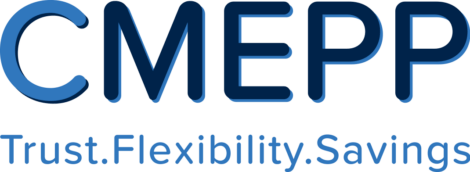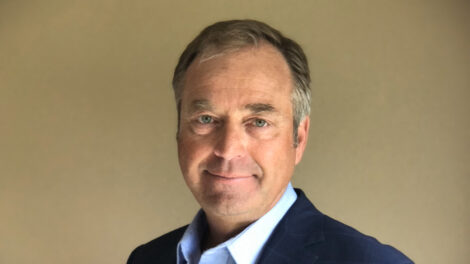Greg Chow: ‘Healthcare organizations are there when we’re most vulnerable, full stop.’
A defining characteristic of Greg Chow is his unwavering commitment to lifelong learning. The CMEPP Board Chair and VP Finance, Partnerships and CFO at Women’s College Hospital understands that continuous growth takes dedication and effort, but he embraces every opportunity to further his knowledge of finance, healthcare management, and board governance.
Greg admits he was intimidated at first by the hospital’s proud history as a trailblazer for women’s health, but says he feels privileged to work at a hospital that continually challenges the status quo.
Greg, you’ve had a successful career working in finance in several healthcare organizations: Trillium and Credit Valley, Southlake, and now Women’s College. Why did you choose to build your career in healthcare? Was it something you planned or did it find you?
I would say it was more pragmatic than anything else. My family underwent some adversity and I needed to learn quite quickly about the healthcare system and how to navigate it. I was the primary caregiver for my mother who was dealing with metastatic disease, and it was through that experience I knew I really wanted to work in healthcare.
There’s something about when you’re the recipient of, I would say, grace, you want to give back. I observed that knowing how to access healthcare services or access support is not self-evident. It also became evident that healthcare providers, even those at the institution level, sometimes didn’t know how to tackle certain issues or need support on how to tackle those issues.
It felt like there was an opportunity for me with my skillset to support and give back to healthcare teams. I think what attracts me is, it’s real. That’s what keeps me engaged to this day. The work is meaningful.
Women’s College Hospital is an important historical institution in Toronto. It’s over 100 years old. This is a place where women were always welcomed and could expect to receive care with a woman physician. Services were always provided regardless of a patient’s ability to pay. How does it feel to work in a place like that, that continues to make care of women the focus?
I want to say, there’s a sense of pride here. You don’t trailblaze by accepting the status quo. Our motto is to revolutionize healthcare. And we’re a bit of a disruptor in that case. At first, it was intimidating, but that aspiration of revolutionizing or really revisiting the status quo, is something I really admire.
The way this organization supports the public – whether it’s with an assessment centre or rapid testing for COVID, bringing vaccines to people in their place of work because they can’t take the time off work to get to a vaccination clinic – it’s part of the culture to take healthcare to the streets. I’ve learned so much being part of this organization. I’m mindful of the opportunity that’s been afforded to me and being grateful for that.
What have you learned about yourself Greg, just being in an organization like this, that you might not have realized before?
So sometimes I’ve had to check my own ignorance about my understanding of populations who, frankly, aren’t doing well. I learned how U of T, via its affiliation with Women’s, had to revamp and systematically revisit its admissions process into medical school. How there was systemic bias in the admissions process that resulted in a cohort that wasn’t representational of the diversity of our city.
One example is with employment or scholastic opportunities, where we value volunteer work or volunteer experience. But one can only volunteer if your priority needs are being met. And some of those needs aren’t met for students. They don’t have an opportunity to volunteer because they’re putting food on a table.
Even scientific researchers are beginning to understand this. Scientific paradigms are influenced by the social values of the day and so well-established paradigms are being reopened. This is something my colleagues at Women’s have taught me. I’m grateful that I’m part of this organization because I feel like I’m learning things that I wouldn’t otherwise be exposed to in your typical institution.
You certainly know that the challenges in healthcare are big, they’re much bigger than each individual hospital. But when you look at innovation, and developments with AI, does that make you optimistic about the kinds of changes – even small ones – that are possible?
Yes, it does, and I’ve seen that through all stages of my career, whether it was during my brief stint as a consultant, or when I was a graduate economic student. In economics, there’s the productivity frontier and innovation that happens. Just look at ChatGPT. Imagine if healthcare figured out data standards and we plugged it into a quantum computer.
We’re not far away from that, where we have a computer that’s reading your DI image or your MRI; it’s a computer that’s triaging your medical assessment and then providing a report to the provider. This is not just Skynet. I mean, it’s becoming real.
When I look at those developments from an economic standpoint, I see the productivity gains, the economic gains and the standard of living gains societies have had with computers and with women entering the workforce. We will benefit from innovation and productivity. So yes, that gives me hope that we’ll be able to get there.
You’ve been on the CMEPP board for seven years. What makes the mission of CMEPP meaningful to you?
Hospitals are realizing we don’t have to do it all ourselves. We live in a resource-constrained reality and here’s a partner (CMEPP) who specializes in something our people do – if they do it at all – on the side of their desk.
CMEPP has scale of a particular area of expertise and a value proposition that resonates with hospitals, why wouldn’t we nurture that and want to make it as successful as possible? I’ve had the opportunity to support CMEPP and I view it as supporting the overall healthcare system.
That’s why we’re in it. It comes down to less work for hospitals to be dealing with, and the teams in biomed or medical imaging or laboratory medicine sleeping better at night knowing there’s an organization that’s watching their back when it comes to the upkeep of the equipment involved in providing care to patients.
You’re a leader within a healthcare organization and you’re also on a Board, so you see it from both sides. I’m wondering, why do you think good governance is important and why is serving on a Board satisfying to you?
When we look at the not-for-profit sector or the community sector or the volunteer sector, there’s a role for those organizations to play. There’s a need that if it weren’t for those organizations would go unmet. And so I’ve come to believe that if it wasn’t for CMEPP, some of the duties that CMEPP does on behalf of its Participants, would fall by the wayside.
What is the purpose of good governance? To me, it’s nurturing organizations that fill a niche, that have a role to play in a broader system. And being a finance person, financial sustainability is always a concern.
Somebody thought it was a good idea for me to take on the Vice-Chair role and eventually, the Chair role. So I’m humbled that folks feel I can give back and I’m excited by what this organization is becoming. I think word is getting out there, that there’s a niche where CMEPP can play. If that value proposition resonates with healthcare providers nationally, why not? I feel fortunate to be part of something that’s evolving positively in this way.
Greg, what’s your go-to resource when you’re stuck or you need an energy or creative boost?
I derive a lot of inspiration from my healthcare colleagues. I think especially those who are at a point in their careers where they’re evaluating options. As an accountant, a business student, you have options. You don’t necessarily have to work in healthcare. For those individuals who choose to remain in healthcare, I’m interested to know, why is it that you stay? What are those experiences that inspire you?
I also know that partnering with my colleagues in the private sector inspires me – seeing how they innovate and put new technology in place. Seeing how a technology can be wielded to enhance the value to an organization’s customer base. Not necessarily for generating profits, but, for the benefit of our clients and our patients. I was on a call the other day with somebody from one of the big four banks and seeing their capabilities in terms of analytics. It’s night and day to what we have in healthcare. It shows us the art of the possible in healthcare to some degree.
What’s something that we can’t see from looking at your LinkedIn profile?
I’m a sucker for my family. And I think there’s newfound pride in my heritage and an appreciation for my parents, my grandparents, in terms of what they’ve built and what I benefitted from. I had aspirations when I was still learning that perhaps my path would take me to another country, to another city, but adversity has a way of clarifying your priorities quite rapidly.
That brings me back to healthcare and why I want to continue working in this field. Because healthcare organizations are there when we’re most vulnerable, full stop.
What’s the best piece of career advice you ever received, Greg?
I would say, the constant nudges to lifelong learning and committing to lifelong learning. I was inspired by a mentor who said, “You have to keep your eye on the horizon a bit.” But committing to lifelong learning is … It’s hard. Yet, looking back, the times when I was dragging my heels to get this degree or to take this course because I was skeptical of what the payoff would be, in hindsight, it’s always paid off.
If there’s anything I can impress upon those who are in a different phase or just starting their journey in their career, it’s those who commit themselves to lifelong learning, they’ll see the fruits of that, for sure.





